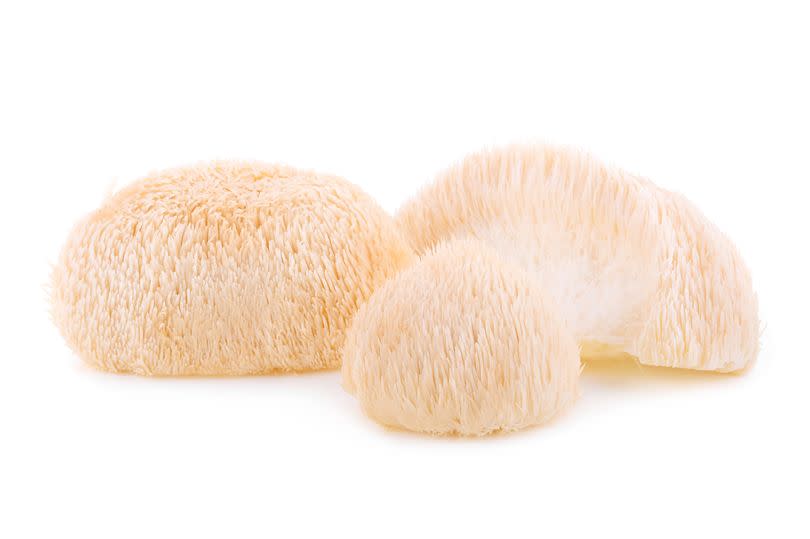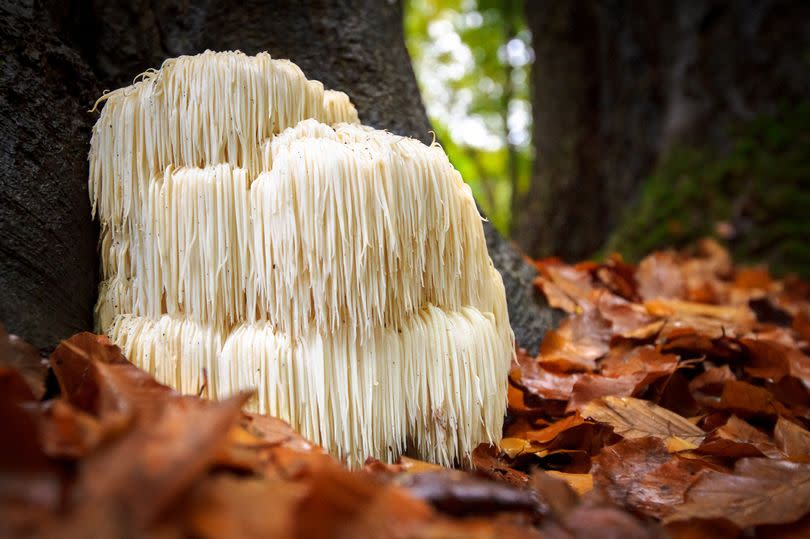'Little-known' 20p superfood could reduce your risk of Alzheimer's, diabetes and more

Not many people are aware of a vegetable that can be used as a supplement and has some incredible health benefits. Lion's mane mushrooms have been shown to be packed with nutrients that may reduce your chances of developing various chronic conditions like heart disease, dementia, depression, and others.
Lion's mane mushrooms are big, white, fuzzy fungi that look like a lion's mane when they sprout. They have bioactive compounds that provide many advantages to the body, including the brain, heart and gut.
According to Rhysa Phommachanh, a healthcare expert at Landys Chemist, "lion's mane is packed with compounds that support brain health and mental clarity. It's particularly popular among students, professionals, and older adults looking to naturally boost cognitive function and memory, while also offering a natural alternative to synthetic supplements.
"They are best tolerated before or during a meal as this helps reduce the risk of any gastrointestinal discomfort as recommended for most dietary supplements. You can even add a powdered form to your tea or coffee as part of your routine."
Holland and Barrett have a deal on a bottle of Lion's Mane Mushrooms with Ginseng and Omega-3 for just £12, marked down from £24.50. With 60 capsules per bottle, each pill is just 20p.

1. Brain boost
Lion's mane mushrooms are packed with compounds like hericenones and erinacines, which can stimulate the production of nerve growth factor, thereby supporting brain health, memory, and focus.
Studies also suggest that lion's mane mushrooms may have neuroprotective properties due to their ability to promote nerve growth and repair. This could potentially assist in preventing or managing neurological conditions such as Alzheimer's, dementia, and Parkinson's disease.
In a 2020 study, individuals with mild Alzheimer's disease who consumed 1 gram of lion's mane mushroom daily for 49 weeks showed significant improvement in cognitive test scores compared to those given a placebo.
Lion's mane mushroom and its extracts have shown potential in reducing memory loss symptoms in mice and protecting against neuronal damage caused by amyloid-beta plaques, which are known to accumulate in the brain in cases of Alzheimer's disease.
Animal research indicates that the compounds in the mushrooms can penetrate the blood-brain barrier. This has sparked increasing curiosity about the potential benefits of using mushrooms to treat a wide range of conditions, including:
Stroke
Parkinson’s disease
Huntington’s disease
Multiple sclerosis
Creutzfeldt-Jakob disease
Nerve injuries
2. Improved mental health
There is evidence to suggest that consuming Lion's Mane Mushrooms can help alleviate symptoms of anxiety and depression due to their anti-inflammatory properties. This mushroom also supports the production of nerve growth factor (NGF), which may help regulate mood and promote overall mental well-being.
A study in 2010 with menopausal women revealed that consuming cookies with lion's mane mushrooms on a daily basis for a month led to a decrease in self-reported feelings of irritation and anxiety. Studies on animals have also shown that lion's mane mushroom extract possesses anti-inflammatory properties, which may help alleviate symptoms of anxiety and depression in mice.
3. Enhanced immune system
Lion's Mane has polysaccharides, like beta-glucans, that can boost the immune system and protect against sickness. Research on rats suggests that lion's mane extract could speed up the recovery of nervous system injuries, but more studies on humans are needed.
4. Anti-inflammatory support
Lion's Mane Mushrooms have antioxidant and anti-inflammatory compounds that could potentially lower oxidative stress and inflammation, which are linked to various chronic diseases. They might also aid in managing diabetes by improving blood sugar control and easing some side effects.
Research shows that lion's mane extract could affect these factors and decrease the risk of developing heart disease. Lion's mane mushrooms contain hericenone B, a compound that has been proven to reduce blood clotting and possibly lower the risk of having a heart attack or stroke.
In a 2012 study that examined the antioxidant properties of 14 different types of mushrooms, lion's mane was ranked fourth for its antioxidant activity. The research suggested that lion's mane could be a beneficial dietary source of antioxidants.
5. Good for your gut
Lion's Mane may also boost digestive health by encouraging the growth of good gut bacteria and reducing inflammation in the gut lining. This could potentially help with ulcers and inflammatory bowel syndrome.
A 2016 study on individuals suffering from ulcerative colitis found that consuming a mushroom supplement containing 14% lion's mane extract resulted in a significant decrease in symptoms and an improvement in quality of life within three weeks. However, the herbal supplement used in the study contained various types of mushrooms, making it difficult to draw conclusions specifically about the effects of lion's mane.
6. Menopause relief
Early research has suggested that taking Lion's Mane Mushrooms could provide symptomatic relief for women experiencing menopause, such as sleep disturbances and mood swings. This could be due to its positive effect on NGFs and cognitive enhancement.
Who shouldn't have lion's mane mushrooms?
Rhysa Phommachanh cautions: "Lion's Mane Mushrooms are generally considered safe to consume as part of a daily supplement regime for most people. However, for some individuals, such as pregnant and breastfeeding women, those taking blood thinners or medication for diabetes or individuals with mushroom allergies, it is advised to consult a healthcare professional before taking them."
Studies in animals have suggested that lion's mane mushroom and its extracts are safe, even at high doses. Yet, human allergic reactions have occurred, so those with allergies to mushrooms should avoid it.
Important notes:
While the research into lion's mane mushrooms is encouraging, more studies involving humans are needed to confirm their potential health benefits. It's also good practice to get nutrients from food where possible, even though supplements can be a useful addition.
Before undertaking any major dietary or lifestyle changes, or starting new supplements, always check with your doctor to ensure they're appropriate for you.

 Yahoo News
Yahoo News 
